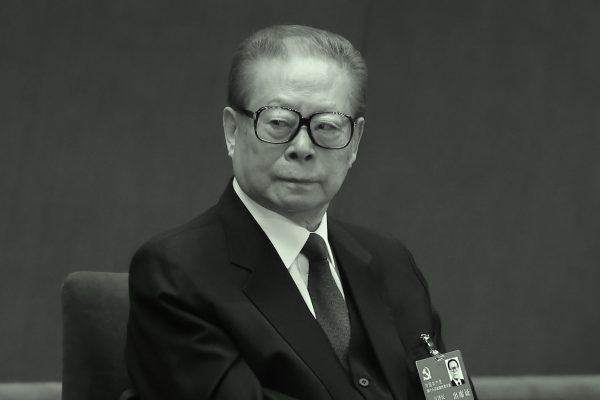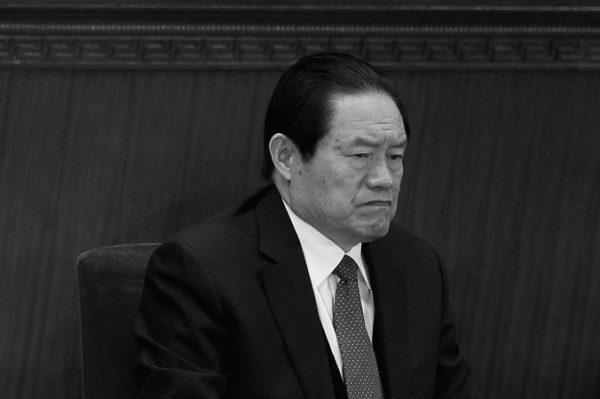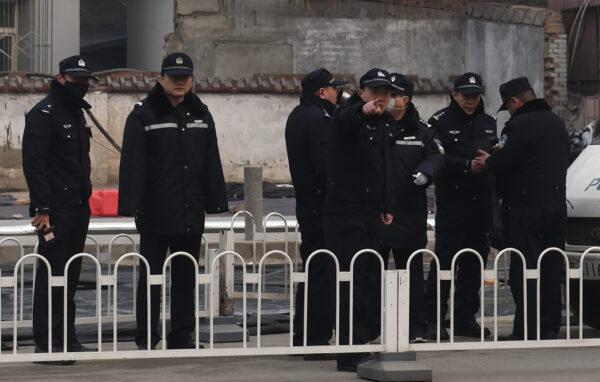Nazi Germany’s infamous Gestapo is long gone, but its crimes have not been forgotten. What’s less known is that the communist regime in China also has a Gestapo-like agency whose sole mission is to brutalize and persecute innocent civilians who are deemed enemies of the state.
The agency, called the “610 Office,” has been in existence since 1999.
Hu Shaobin, a former director at the 610 office in central China’s Wuhan city, openly acknowledged that the agency he worked for was a current-day Gestapo, with the power to mobilize officials working in the military, police department, judiciary, and public security.
Over the years, victims have recounted the merciless attitude of those working at the shadowy body.
“When no one is around, nobody will ever know if I beat you to death,” Wang Xin said. Wang, a staff member at a county-level 610 Office in China’s northeastern Shangdong Province, was known for brutally beating his victims and subjecting them to forced feeding.
“I could throw you into a brainwashing class,” Zheng Guolun, who worked at the regional 610 Office in central China’s Chongqing city, said in 2015. “Tomorrow is New Year’s Day and you wouldn’t be left in peace until the Lunar Chinese New Year.”
Xie Shinong, of a 610 Office in southwest China’s Chengdu city, said, “We don’t follow the law.”
“Here is $4,000 yuan [$560]. If you don’t want it, you won’t receive anything else. It is useless if you take it to any other authority,” Lei Yancheng, a regional deputy director, told the family of Liu Shufen, who had died from the persecution in 2003.
These unsettling words were all directed at Chinese citizens who shared one thing in common—they were all practitioners of a spiritual discipline known as Falun Gong. Their accounts were reported on Minghui.org, a U.S.-based nonprofit organization dedicated to reporting on the persecution of the group in China.

Millions of Chinese citizens embraced the practice after it was introduced to the public in 1992. By the end of the decade, there were 70 million to 100 million adherents in China, according to estimates at the time.
610 Office
The office is an extralegal Party organization with offices and branches throughout China, including state-run companies and universities.Its very existence is illegal, since it has never been approved by the National People’s Congress, China’s rubber-stamp legislature, nor the 24-member Politburo made up of Party elites.
Nonetheless, the office holds enormous power, wielding influence over nearly all government agencies, including law enforcement, courts, prosecution, and justice.
The 610 Office has been accused of committing a litany of crimes against Falun Gong practitioners, including kidnapping, unlawful detention, torture, and state-sanctioned forced organ harvesting.
From 1999 to 2012, the first three heads of the CCP Leading Group that oversees the 610 Office—Li Lanqing, Luo Gan, and Zhou Yongkang—were all loyal to Jiang. While in charge of the office, Luo and Zhou were also the heads of the PLAC.

Insiders
Some former 610 Office officials have stepped forward, exposing details of what they had done in persecuting Falun Gong practitioners.“Our 610 Office not only physically harmed Falun Gong practitioners but also despicably cut off their source of income,” the man wrote.
“There was an elderly couple who were owners of a very good hotel. Because they were Falun Gong practitioners, we brought the police along to harass them, with police vehicles frequently appearing before its front doors. In the end, the hotel could not maintain its normal operations and the family lost their livelihood.”
Once, he and others in the office tracked down a senior female practitioner in a remote village, who had to give up her life in a city because she was being harassed.
“She told us that her body used to be frail, but practicing Falun Gong had allowed her to become healthy,” the man wrote. “But we intimidated her, threatened her, and told her to turn over her Falun Gong texts, preventing her from continuing to be a practitioner.
“Because she couldn’t practice Falun Gong under normal conditions, her health deteriorated quickly. She had a relapse of heart disease, had blood in her urine, and her legs became swollen like an elephant. Eventually, I saw that her family sent her to the hospital for emergency treatment.”
The man added that after learning from his friend what Falun Gong was really about, he decided to try out the practice for himself.
Incentives
Another insider who came forward was Hao Fengjun, who once worked for the 610 Office in the National Security Bureau in northern China’s Tianjin city but fled to Australia in 2005 because he didn’t want to participate in the persecution anymore.“In the 610 Office, of course, there were people who worked very hard because the more Falun Gong practitioners they arrested, the more bonus they got,” Hao said.
Even more profitable than making arrests in China was collecting intelligence on overseas Falun Gong adherents. According to Hao, basic information about practitioners’ personal lives, if deemed valuable, could be worth as much as 50,000 yuan (about $7,200).

“The assessment is based on a 100-point evaluation system with specific scores assigned for each arrested believer depending on his or her faith,” Bitter Winter reported.
A police station was awarded 10 points for arresting a Falun Gong practitioner, and five points for throwing one into detention. Any station chief could lose his job over failure to fulfill the quota.
Canada and US
Hao also revealed that there were more than 1,000 spies watching and informing on Falun Gong adherents in Canada.According to the document, “anti-heretical religion seminars” were held in the Chinese communities in those three Canadian cities “to publicize related Chinese laws and regulations for dealing with heretical religions, and basic knowledge of anti-heretical religions.”
The document emphasized that the seminars had achieved their intended purpose, with local citizens who attended expressing that they will not “believe in,” “promote,” or “participate in” Falun Gong or other religions targeted by the Party.

Yu was sanctioned “for his involvement in gross violations of human rights, namely the arbitrary detention of Falun Gong practitioners for their spiritual beliefs,” Secretary of State Antony Blinken said in a statement.
Following the announcement, Sen. Marco Rubio (R-Fla.) took to Twitter to applaud the U.S. administration for its decision.





